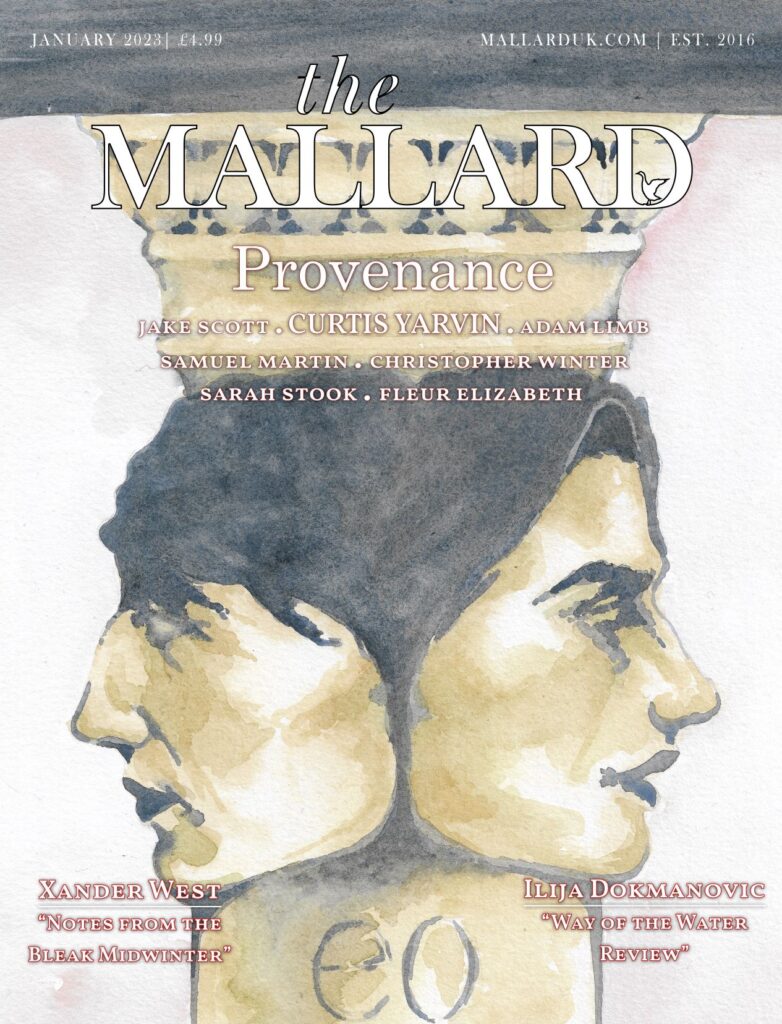Ride (read) or Die: 2023 Book Report (Part III)
Following on from last years experiment of attempting to read at least 10 pages of a book a day to increase my reading, I found it thoroughly enjoyable and wished to continue my reading journey in 2023. About halfway through last year, a friend of mine suggested to me that the 10 pages target could be detrimental to my overall reading, as it would encourage me to simply put the book down after just 10 pages (something I later realised it was doing). This year, I chose to do away with the 10 pages target and have decided to just make a pledge to read every day. In the first week of the year, I have already read considerably faster than last year, so I think perhaps my friend was on to something.
I also realised, reading back on last years review scores, that I was a very generous reviewer. I think this was because I did not have enough experience to know what made a book good or bad. I hope that my reviews can be more reflective of the overall reading experience this year.
Book 11: The 48 Laws of Power by Robert Greene
Read from: 28/10/2023 to 28/11/2023
Rating: 3/5
I had seen this book pushed quite heavily online before by certain influencers and I was always curious to see what it was about. Robert Greene appears to have written a considerable number of these types of books, so I was very intrigued to know what the fuss was. I thought the book was fine but definitely lacking in some areas.
The book is essentially a series of lessons regarding how to better navigate life in a more Machiavellian way to attain power. Some of the ideas put forward are genuinely very interesting, and it was nice to have certain topics explained a certain way. Other areas seemed a bit obvious and repetitive which was annoying whilst trying to get through the book.
A lot of Greene’s rules essentially boil down to ‘don’t tell other people what you are up to’, which I suppose is a pretty good rule to follow if you are hunting power. But there are only so many times you can hear that ‘rule’ phrased differently before you start getting bored.
Greene backs up his claims with a plethora of anecdotes which I mostly enjoyed. He fell into the same trap as before, however, in that a lot of the anecdotes start to blend into one after a while – especially after using the same anecdote repeatedly. If I never hear the name ‘Charles Talleyrand’ again it will still be too soon! I only become disillusioned with Greene’s anecdotes after he started discussing the English civil war – an area of his anecdotes I was much more versed in than revolutionary France or Renaissance Italy. He made some obvious oversimplifications which annoyed me and made me question the legitimacy of some of his other tales to back up his ideas. I don’t think that this invalidates what he was saying, I just wish he had left less up to speculation regarding whether or not he actually knew the history.
Overall, a good book which I would still recommend. His insight is useful, and this would be a pretty good primer for Machiavellian style thinking. I would say, however, that you should stick to the audiobook over the actual paperback – it will make it easier to digest.
Book 12: One Day in the Life of Ivan Denisovich by Aleksandr Solzhenitsyn
Read from: 06/11/2023 to 09/11/2023
Rating: 5/5
I was strolling through Belfast on a trip there recently, when I picked up this book at a Waterstones for my flight home. Something short to keep me occupied and also increase my book tally on Goodreads before the end of the year. Sure enough, on my (very short) flight back to Newcastle the same day, I ploughed through about a third of it. I found it very difficult to put down and ignore, as I have my other books recently.
As the title suggests, the book tells the story of one day in the life of Ivan Denisovich – a prisoner at a Soviet Gulag in the early 1950s. It takes you through his agonising routine right from the moment he wakes up to when he finally goes to sleep again. It details the way in which he navigates the trials and tribulations of life in the Siberian gulag he is currently imprisoned in, and the many interactions he has with the other prisoners. The book is too short to summarise without spoiling the whole thing, so I won’t do that. I would highly recommend that you take the time to just read it instead.
There was something extremely biting about the way that this was written. The author, Solzhenitsyn, was a prisoner in a gulag for eight years, so he had a considerable amount of his own experience to draw from when writing this book. His main character, Ivan, is incredibly relatable and felt very human. Not necessarily a good or a bad person, just someone trying to survive and make the best out of a bad situation. Going so far as to describe his day as ‘a good one’ simply because he was able to get slightly more food after doing some favours for other inmates; routinely breaking minor rules to make his life easier, working cordially with his inmates, and doing everything possible to do as little work as possible for as much reward as he could.
Every aspect of the story felt very believable and not exaggerated; I never felt as though I was having the wool pulled over my eyes by what is, essentially, a piece of anti-communist propaganda. He describes the guards as harsh but lazy, the other inmates are not depicted as saints, but as a wide array of people with different motives and agendas – a very real and convincing story.
The book is very well written and was a genuinely fascinating insight into gulag life, an area which I have always been interested in but never researched much. It is a genuine ‘must-read’ for anyone interested in that aspect of Stalinist Russia and the early-cold-war Soviet system of punishment. It is also a delightfully short book and reads very easily. As I said before, I would thoroughly recommend reading this.
Book 13: Star by Yukio Mishima
Read from: 21/11/2023 to 22/11/2023
Rating: 5/5
I read two books by Yukio Mishima last year, and he is fast becoming one of my favourite authors. I was enticed to buy this book from the moment I saw it; a short story by Mishima is often a treat and I was not at all disappointed by this one.
The story revolves around the main character Rikio, a young Japanese actor in the prime of his career, and his ugly assistant and lover Kayo. The story revolves around his struggle with fame and the fleeting nature of his career; it also spends a fair amount of time touching on the absurdity of the film industry in Japan in the 1960s and 70’s (something which Mishima was personally accustomed to) and how Rikio navigates it as best as he can.
Due to the relatively short nature of the book, writing too long of a review would spoil it. However, I will say that I was absolutely entranced by Mishima’s style of writing and his amazing ability to describe some of the more vulgar elements of life (masturbation, sex, drug abuse, etc) in such a poetic and charming way. His powerful use of metaphor continues to amaze me with every book of his that I read. His characters feel painfully real, and his skill at describing scenes and people in such brevity are fantastic.
I would recommend this book to anyone interested in getting into Mishima and Japanese fiction. I thoroughly enjoyed it.
Book 14: The Call of Cthulhu by H.P. Lovecraft
Read from: 23/11/2023 to 27/11/2023
Rating: 5/5
Much like many other ‘American Classics’, the Call of Cthulhu is one of those books which seems to have considerable prominence in online circles solely due to the fact that large amounts of American teenagers are forced to read it at High School. As I am not (and never have been) an American teenager, I have had very little exposure to Lovecraft’s short stories besides the occasional reference on television or through conversations with American’s online. I must say, however, I was thoroughly impressed by this book and Lovecraft’s writing style.
The book is written from the perspective of a young man going through the notes of his dead relative, a university professor who seems to have stumbled on some kind of conspiracy regarding an ancient god-like figure, Cthulu, who drives people to madness. The story details, from the authors point of view, how he came to discover his uncle’s notes and the journey he went on to validate their authenticity. At the start of the book, he is quite the cynical sceptic; by the end of his journey, he is a terrified believer who wishes that his works are never found and is constantly paranoid that he will be murdered for what he has uncovered – that Cthulu is indeed real and that his very brief appearance made many ‘sensitive young men’ (artists, architects etc) all around the world go mad.
I am not a fan of horror films; I find them quite unpleasant. However, I have thoroughly enjoyed reading horror. The writer has no opportunity to shoehorn in cheap ‘jump scares’ and low budget special effects. Horror fiction has to be well written and, instead of a brief thrill, creates a genuine sense of dread. I could feel my own arm hairs pricking up with goosebumps whilst reading it.
I genuinely really enjoyed this book, and will be reading more of HP Lovecraft’s works in the future. A good read and a good introduction to his style of writing and short stories.
Book 15: The Shadow Over Innsmouth by H.P. Lovecraft
Read from: 27/11/2023 to 29/12/2023
Rating: 5/5
This was my final book of 2023 and was purchased alongside ‘The Call of Cthulhu’. I would have finished it much quicker if it weren’t for the many various Christmas festivities that fall at this time of year which has significantly impeded my reading progress.
The book follows the story of a young student who is touring the old towns and villages of the New England coast during a gap year in his studies. During his travels, he comes across the town of Innsmouth whilst making his way to Arkham. The town is shunned by the locals of the surrounding villages and is falling into a very ruinous state. During his visit, he meets an old drunkard who explains to him that the town is infested with fish-people who worship ancient eldritch gods and sacrifice people to the sea.
Due to its short length, to say any more about the plot would spoil it. However, I found the story very gripping and exceedingly exciting. I felt genuinely frightened during much of the latter half of the book and thoroughly enjoyed the way the town and its people were portrayed. Lovecraft does an excellent job at thrilling the reader and the book is worthy of the praise it receives.
I would recommend this book to anyone interested in classic American fiction or someone interested in the works of Lovecraft specially. However, I would say that it would probably be better to read ‘The Call of Cthulhu’ first, as this book is referenced quite heavily near the middle and end of Shadow over Innsmouth.







